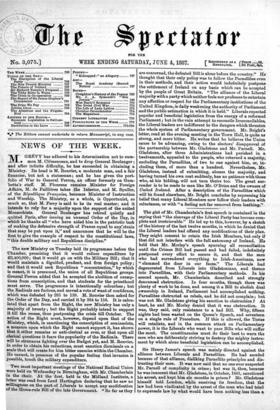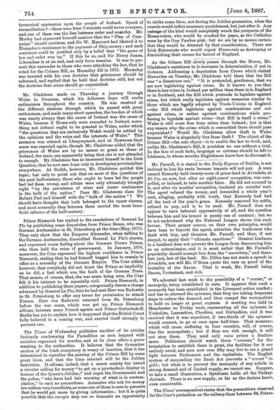Sir Henry James's speech was mainly directed against the alliance
between Liberals and Parnellites. He had seceded because of that alliance, disliking Parnellite principles and din- trusting their men. It was now said that no one ever suspected Mr. Parnell of complicity in crime ; but was it, then, because he was innocent that Mr. Gladstone, in October, 1881, sanctioned his arrest, and kept him six months in prison P Mr. Gladstone himself told London, while receiving its freedom, that the law had been vindicated by the arrest of the man who had tried to supersede law by what would have been nothing less than a
tyrannical oppression upon the people of Ireland. Speak of reconciliation ?—there were lines Unionists could never overpass, and one of them was the line between order and anarchy. Mr. Morley had expressed himself anxious that the "Plan of Cam- paign" should continue, and Sir W. Harcourt had likened it to Hampden's resistance to the payment of Ship-money ; and such sentences could be justified only by a belief that "the game of law and order was up." If this be so, said Sir Henry James, Liberalism is at an end, and only force remains. It was to pre- vent this surrender to those who were attacking the law, that he voted for the Crimes Bill, as Macaulay did in 1833. Macaulay was taunted with his own doctrine that grievances should be redressed, and replied that he held that doctrine still, but not the doctrine that crime should go unpunished.



































